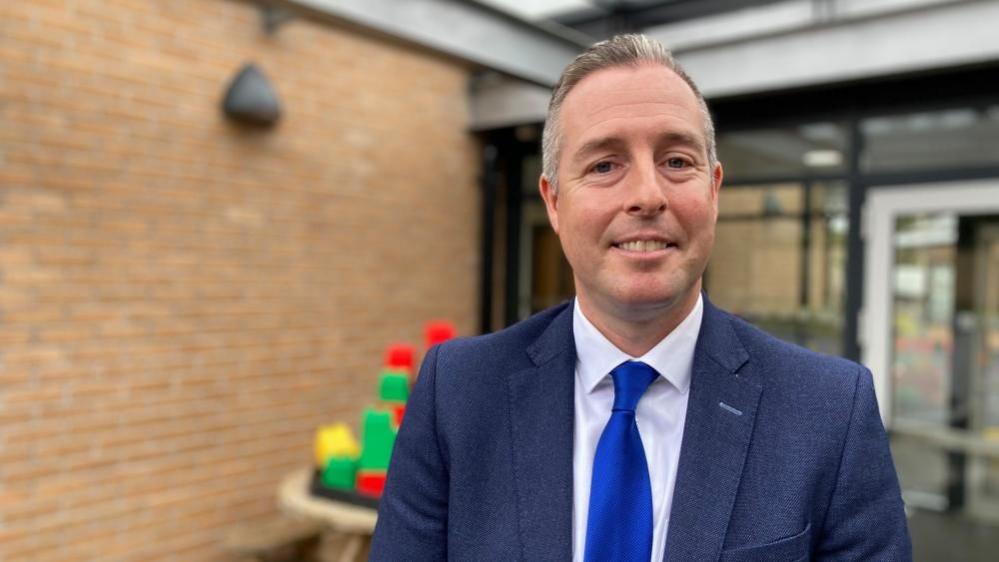Second DUP minister holds meeting with loyalist group
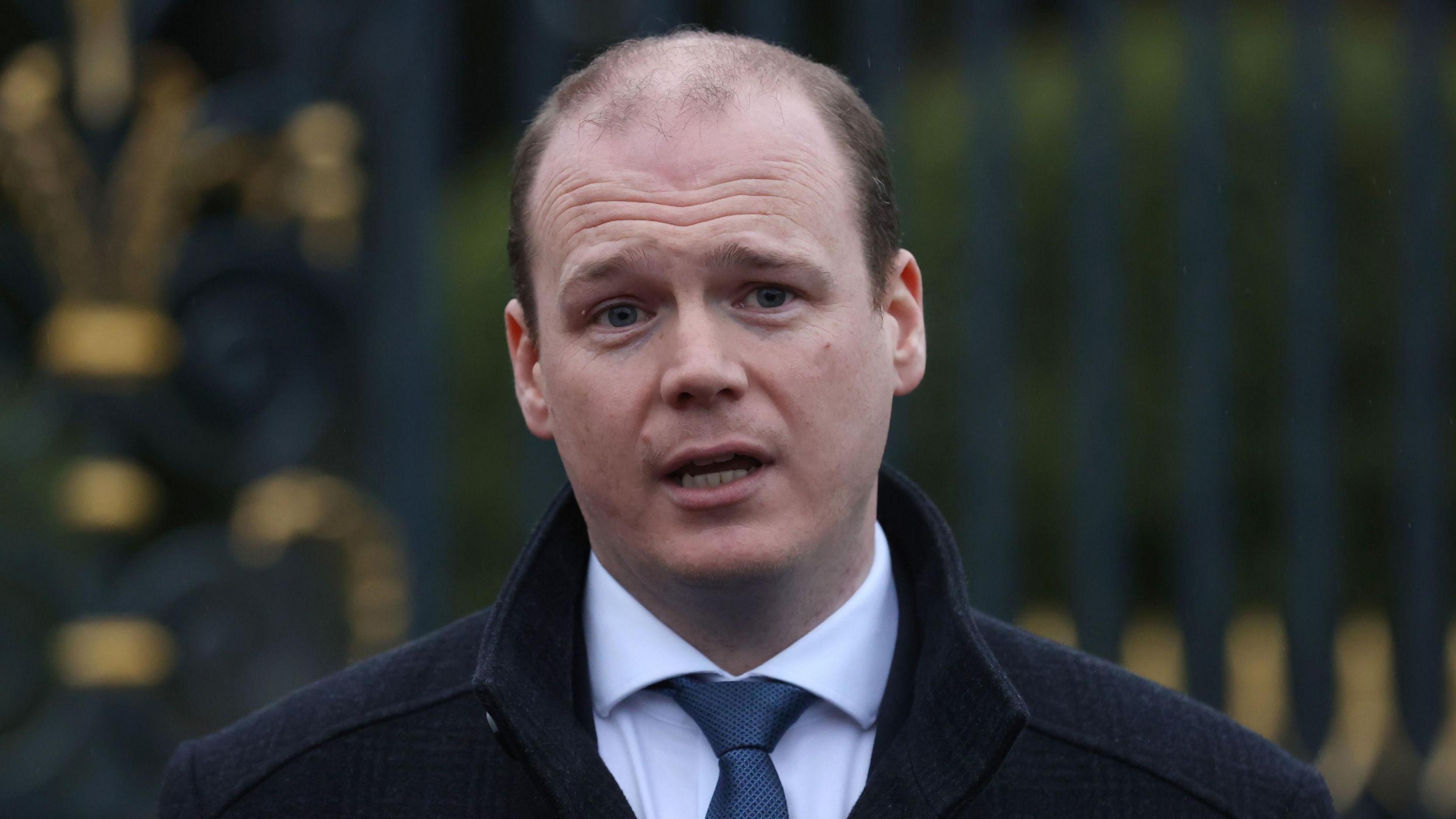
A delegation from the Loyalist Communities Council met the DUP's Gordon Lyons
- Published
The Loyalist Communities Council (LCC) has met Democratic Unionist Party (DUP) Minister for Communities Gordon Lyons.
The Department for Communities confirmed that a meeting took place "to discuss economic and social deprivation in unionist communities".
It comes after fellow DUP minister Paul Givan faced criticism for meeting the group last month over proposals to build an Irish language school in east Belfast.
The LCC includes representatives from paramilitary groups the Ulster Volunteer Force (UVF) and Ulster Defence Association (UDA).
Meeting 'at the request of the LCC'
Givan had previously defended his meeting, adding that nobody other than him will dictate which schools should open or close.
The Department for Communities said the meeting with Lyons was arranged at the request of the LCC.
On Wednesday, it said Lyons had "highlighted the work he is progressing in relation to an anti poverty strategy, his commitment to ensuring an adequate supply of good quality housing and the importance of education and the development of skills in areas of deprivation".
The LCC said a delegation met Lyons to ask him to consider conducting a fresh "needs analysis on loyalist and unionist communities that continue to suffer economic deprivation, educational disadvantage, and infrastructure neglect".
The LCC delegation also urged Lyons to look at providing social housing in the Shankill Road, Sandy Row and Suffolk Road areas of Belfast where "large sites have been available for years but remain unbuilt".
'Lack of engagement' with other groups
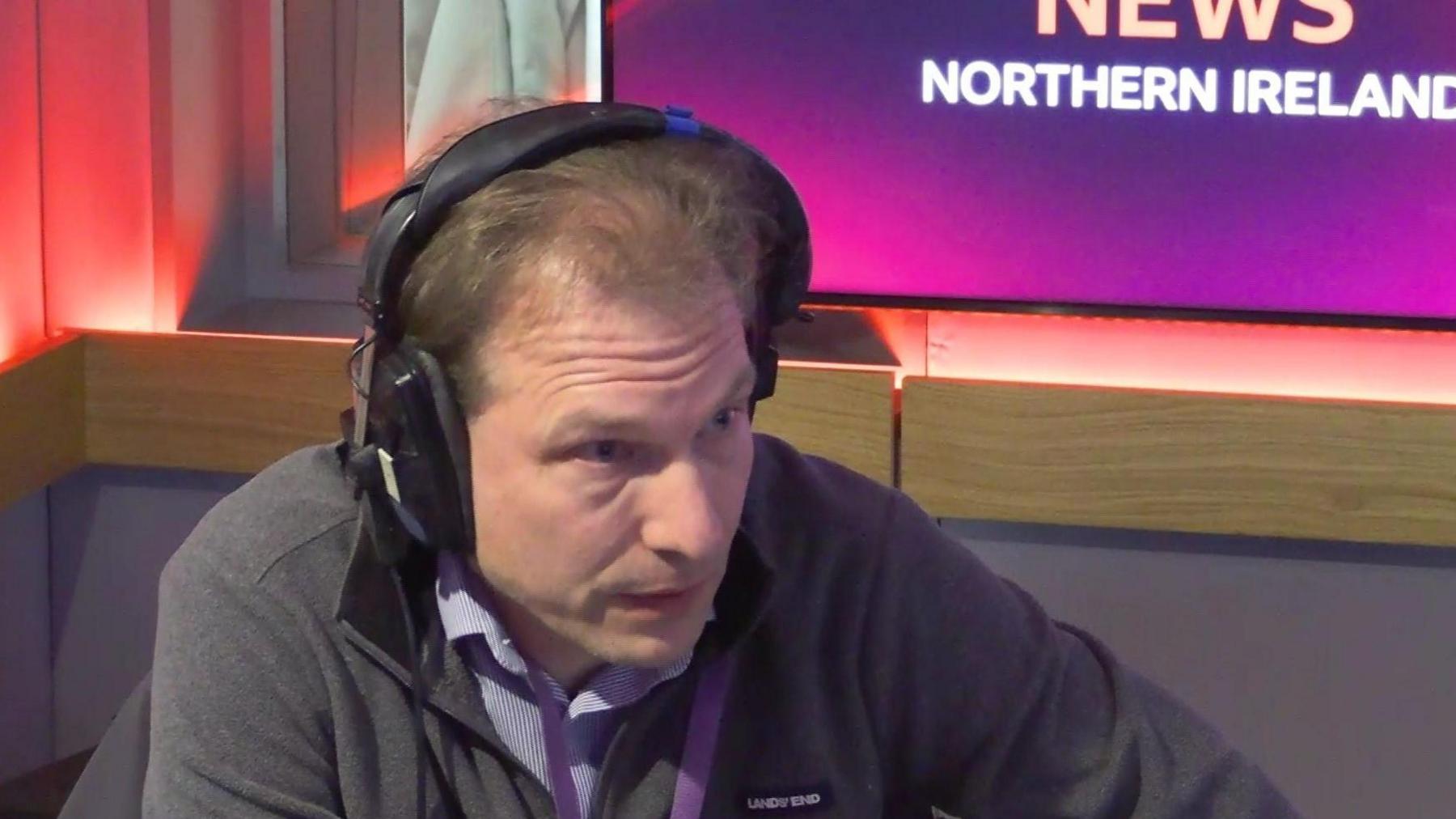
Dan Holder criticised the "context" of the minister's meeting with the LCC
Speaking on BBC Radio Ulster's Talkback programme, Dan Holder from the Equality Coalition criticised the "context" of the minister's meeting with the LCC after "repeatedly refusing to meet the key stakeholder organisations in the sector about the strategies in which he is responsible for."
The BBC has seen the letter from the Equality Coalition requesting an 'urgent' meeting with Gordon Lyons.
The letter raised members' concerns that the Minister "had had a lack of engagement with external groups in the sector."
'There is no pandering'
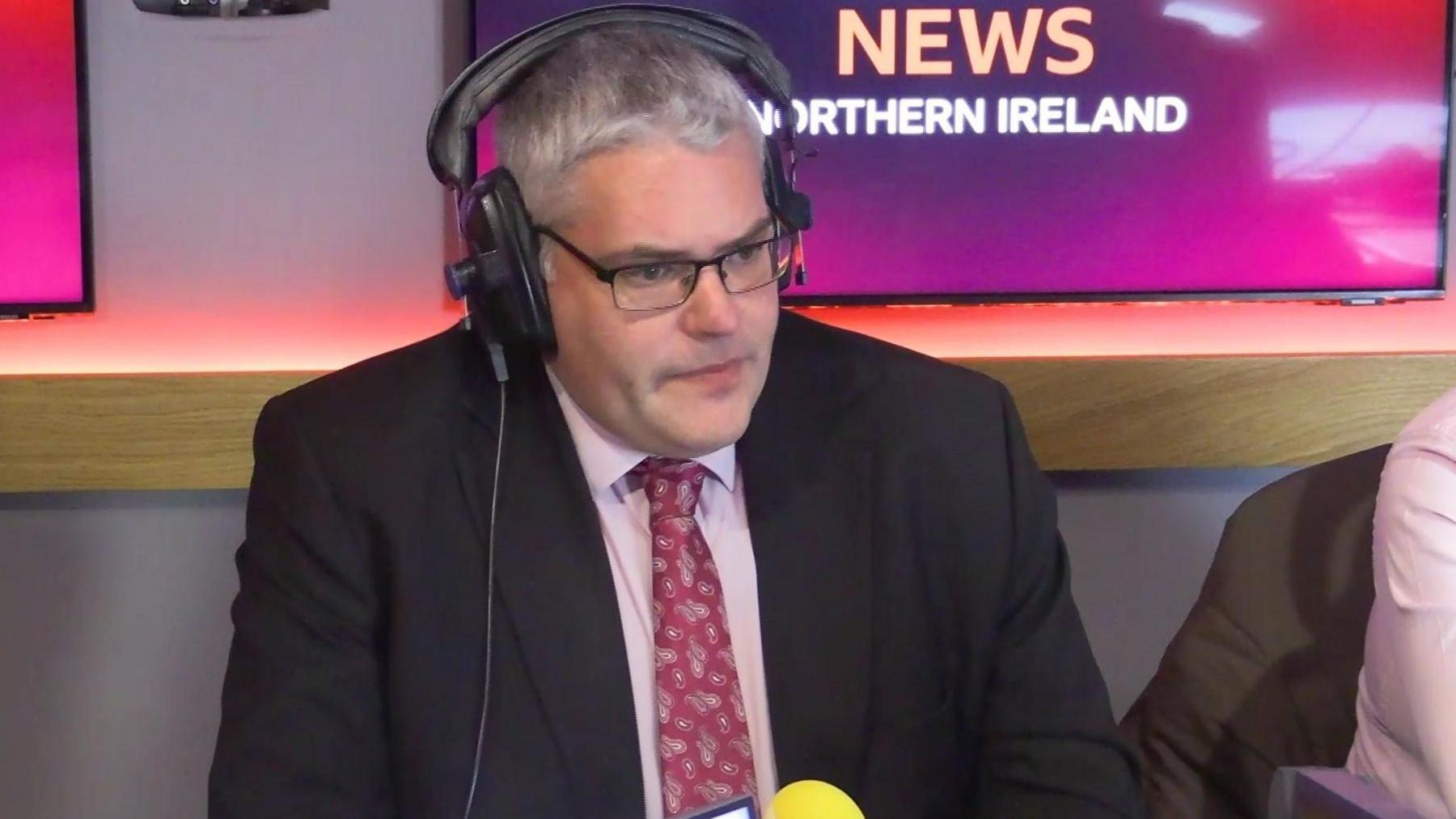
Gavin Robinson told BBC Talkback that it was right to engage with the LCC
Democratic Unionist Party (DUP) leader Gavin Robinson denied that ministers meeting the Loyalist Communities Council (LCC) is “pandering” to paramilitaries.
"There is no pandering, and there is no suggestion that they have had meetings afforded to them that aren't available to others,” he told BBC Talkback.
“Ministers meet with a whole range of people across a wide range of sectors.”
The MP for Belfast East said political engagement is needed to encourage paramilitaries to “transition” away from criminality.
“They will never have cover from me for criminality, illegality, drug-dealing, but I'm not turning my back on the aspiration which is to complete this job of transition."
He added: "I recognise there is a job that needs to be done and we should engage.
“We should engage on the basis of the rule of law but recognise where we have been in Northern Ireland and not turn our backs on the job that still needs to be done for everyone's benefit."
Others 'repeatedly denied meetings'
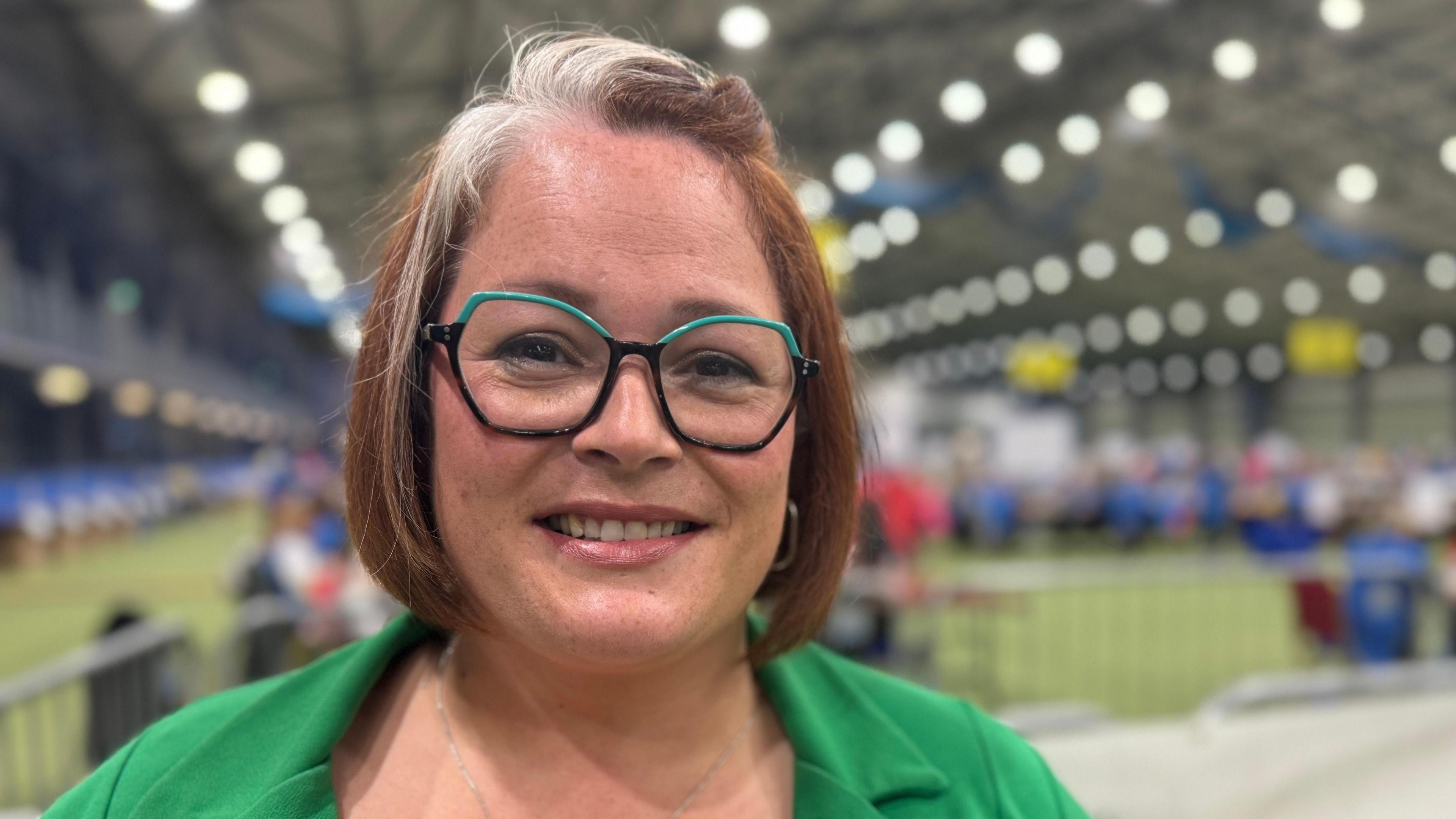
Alliance Party North Antrim MLA Sian Muholland said that if the minister was meeting "a range of organisations" then it would have been acceptable
Alliance MLA Sian Mulholland told Good Morning Ulster on Thursday morning: "For me the lines are blurred."
"From my experience on the Committee for Communities, I know there are hundreds of grassroots community voluntary organisations who would love a meeting with the Minister of Communities but have been denied.
"The Equality Coalition, who represent many of these organisations, have told me that they have been repeatedly denied meetings," Mulholland added.
She continued to state that if the minister was meeting with "a range of organisations to gather information and learn from different communities that would be acceptable but this is not the case."
'Aura of legitimacy' created
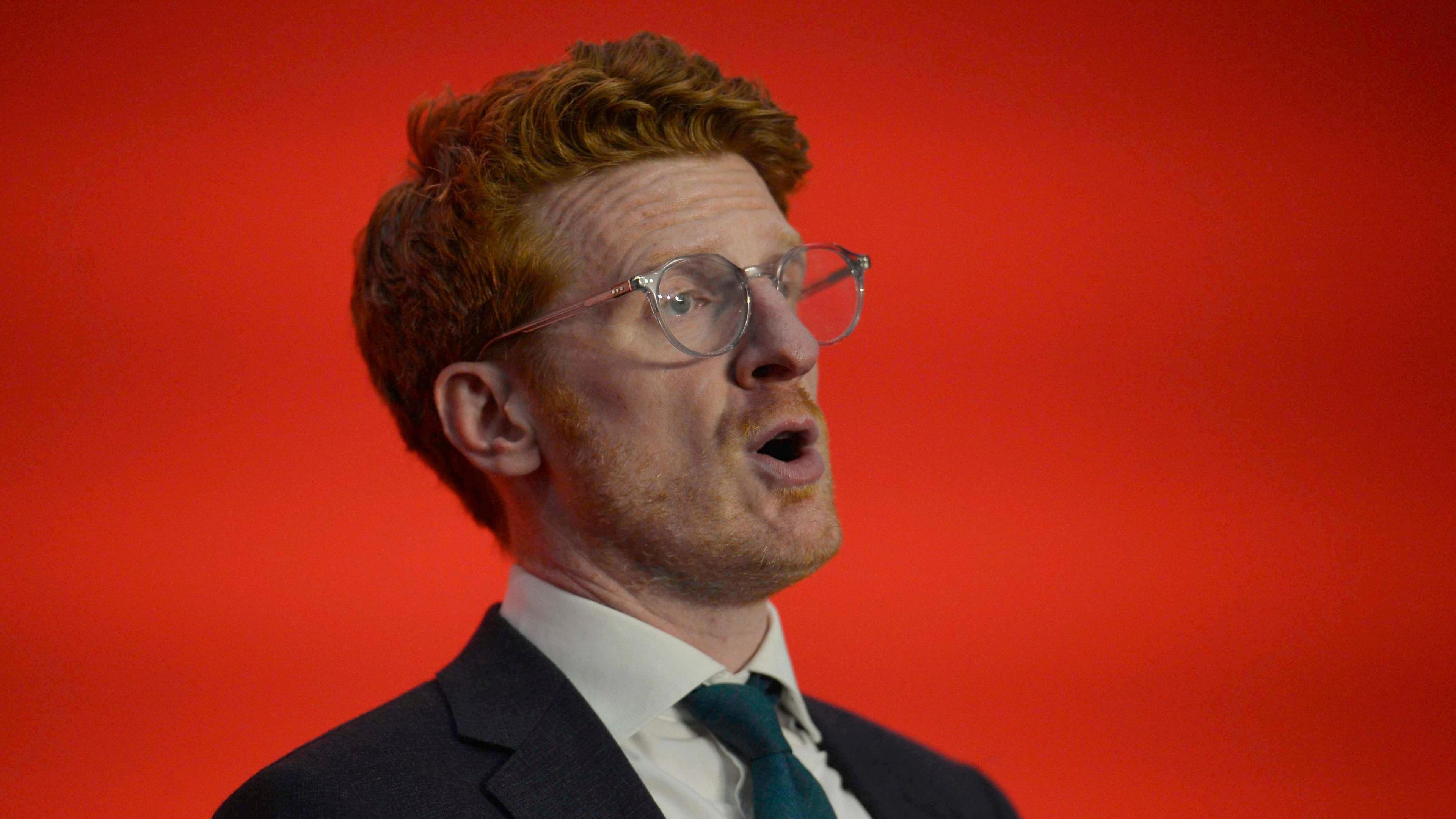
Matthew O'Toole said he was troubled by the creation of "an aura of legitimacy around these organisations"
Also on Good Morning Ulster, SDLP Leader of the Opposition at Stormont Matthew O'Toole said that there is no evidence to prove these organisations fundamentally want to move away from paramilitary involvement.
"I am troubled by the sense that you can create an aura of legitimacy around these organisations and meetings," he stated.
"There are amazing organisations in working class areas of all different kinds without any links to paramilitaries.
"They aren’t umbrella or representative groups and they still can’t get a meeting," O'Toole continued.
"Gordon Lyons and Paul Givan have the power to make policies and improve the lives of people in these communities but they should be doing so by speaking to groups who don't represent the paramilitaries."
The Loyalist Communities Council was set up in 2015 by former Downing Street Chief of Staff Jonathan Powell as an umbrella group representing proscribed loyalist organisations linked to terrorism - the Ulster Defence Association (UDA), the Ulster Volunteer Force (UVF) and the Red Hand Commando.
It was launched back then to coincide with the 21st anniversary of the 1994 Combined Loyalist Military Command ceasefire.
- Published2 October 2024
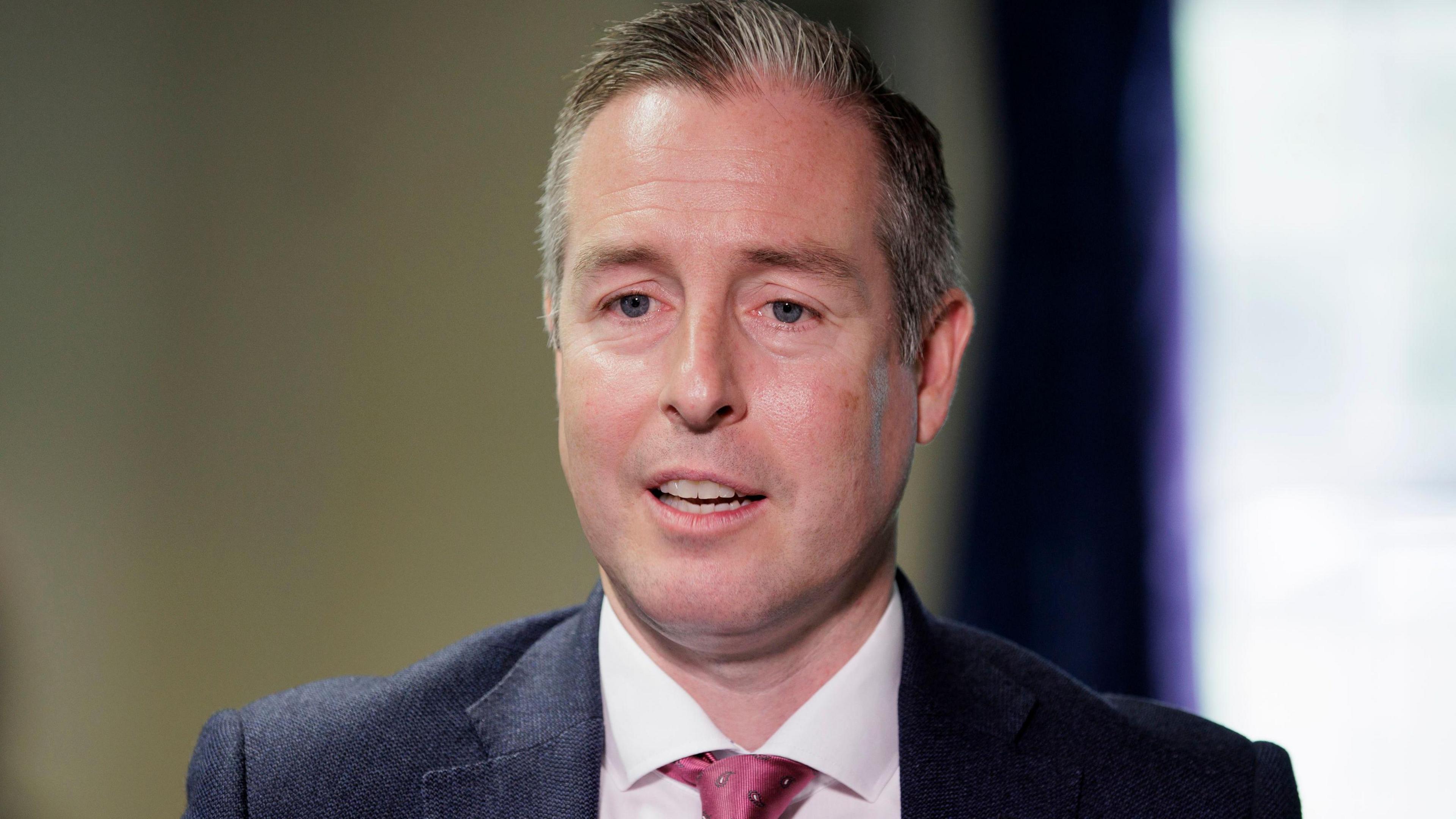
- Published4 October 2024
